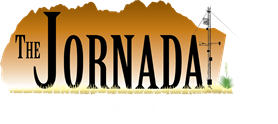| Title | USDA Southwest climate hub for climate change |
| Publication Type | Conference Paper |
| Year of Publication | 2015 |
| Authors | Rango A., Steele C, Elias EH, Havstad K |
| Conference Name | Climate Prediction Applications Science Workshop (CPASW) |
| Date Published | 03/2015 |
| Publisher | Climate Prediction Applications Science Workshop (CPASW) |
| Conference Location | Las Cruces, NM |
| ARIS Log Number | 321709 |
| Abstract | The USDA Southwest (SW) Climate Hub was created in February 2014 to develop risk adaptation and mitigation strategies for coping with climate change effects on agricultural productivity. There are seven regional hubs across the country with three subsidiary hubs. The SW Climate Hub Region is made up of six states: New Mexico, Arizona, Utah, Nevada, California and Hawaii (plus the Trust Territories of the Pacific Islands). The SW Climate Hub has a subsidiary hub located in Davis, California. The Southwest region has high climatic diversity, with the lowest and highest average annual rainfall in the U.S.(6.0 cm in Death Valley, CA and 1168 cm at Mt. Waialeale, HI). There are major deserts in five of the six states, yet most of the states, with exception of Hawaii, depend upon the melting of mountain snowpacks for their surface water supply. Additionally, many of the agricultural areas of the SW Regional Hub depend upon irrigation water to maintain productivity. The SW Regional Hub will rely upon existing infrastructure of the Cooperative Extension Service at Land-Grant State Universities. Extension service and USDA-NRCS personnel have existing networks to communicate with stakeholders (farmers, ranchers, and forest landowners) through meetings and workshops which have already started in the six states. Outreach through the development of a weather and climate impact modules designed for seventh grade students and their teachers will foster education of future generations of rural land managers. We will be synthesizing and evaluating existing reports, literature and information on regional climate projections, water resources, and agricultural adaptation strategies related to climate in the Southwest. The results will be organized in a spatial format and provided through the SW Hub website (http://swclimatehub.info) and peer-reviewed articles. |


